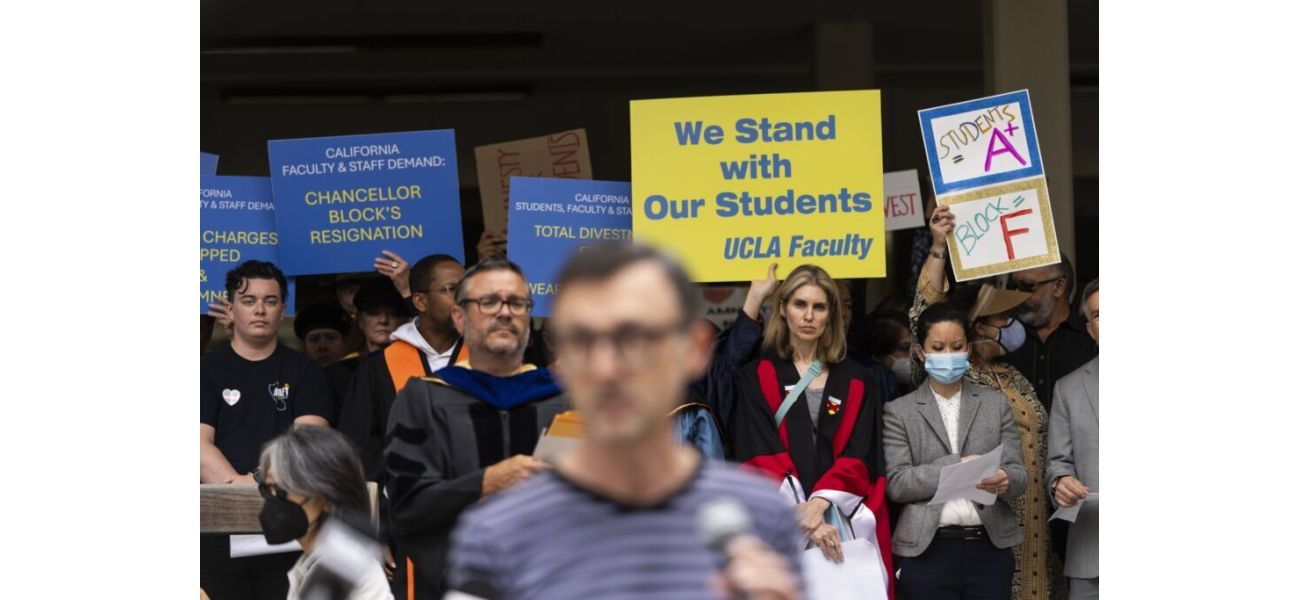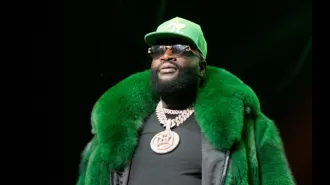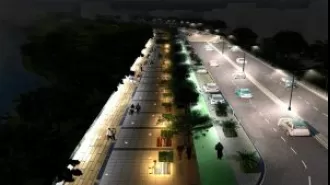College faculty outraged over new campus protest regulations.
College campuses are seeing a rise in dissent this autumn, not only from student activists but also from other students due to restrictions on protests.
October 22nd 2024.

As the fall semester unfolds at American colleges, it's not just the student activists who are voicing their dissent. With strict regulations in place that limit student protests, faculty members have stepped up to defend their cause.
To these professors, the new protest policies pose a threat to both freedom of speech and the freedom to think - two fundamental pillars of university life. This semester, some of the most prominent demonstrations have been led by faculty members advocating for the right to protest itself.
Last spring, pro-Palestinian tent encampments appeared on campuses, disrupting commencement ceremonies and sparking accusations of anti-Semitism. In response, many schools implemented new restrictions. For example, Indiana University rolled out an "expressive activity policy" in August that prohibits protests after 11 p.m., bans camping on campus, and requires approval for signs. In defiance, a group of faculty members, students, and community members have been gathering on campus every Sunday for candlelight vigils that extend past the 11 p.m. deadline.
Russ Skiba, a professor emeritus who attends the vigils, believes that these new restrictions are just part of a bigger movement to limit academic freedom on campuses. In Indiana, a law was passed in March that increases state oversight of public universities. The law, which was sponsored by a lawmaker who claimed that colleges suffer from "monolithic thinking," calls for post-tenure reviews of faculty to assess whether they are promoting diversity of thought and keeping their political views out of the classroom. Skiba and other Indiana professors strongly opposed this bill, which they criticized for being vague and open to interpretation.
Skiba stated, "Universities are supposed to be a haven for free speech, but when there is a movement that opposes democracy, the first thing they attack is freedom of speech." Faculty members from colleges across the country have been pushing back against these new rules through protests, vigils, and demands for clarification.
At Harvard University, a group of professors held a "study-in" at the library on October 16 to support pro-Palestinian students who were temporarily banned from the library for holding a similar demonstration. Similarly, in September, a group representing faculty from the University of California filed a complaint stating that the university was attempting to limit their academic freedom and prevent them from teaching about the Israel-Hamas war "in a way that does not align with the University's own position."
For some professors, the new protest restrictions are not only an issue of free speech, but also a labor issue. As colleges continue to grant tenure to fewer professors and face pressure to eliminate it altogether, legislatures in several states have taken an interest in how topics such as race, gender, and history are taught. Faculty members believe that these protest guidelines, handed down by administrators, are another way to diminish their say in university affairs.
Todd Wolfson, a journalism and media studies professor at Rutgers University and president of the American Association of University Professors, stated, "We, as faculty, need to organize and demand a shared governance that gives us the right to review and challenge these policies. They are not made by people who come from the academic arm of our institutions."
Tensions on campuses across the nation have been high since the beginning of the war over a year ago. The conflict began when Hamas-led militants attacked southern Israel, resulting in the deaths of approximately 1,200 people, mostly civilians, and the abduction of around 250. Israel's response has led to the deaths of over 42,000 Palestinians, according to the Gaza Health Ministry, although it is unclear how many of those were fighters.
Colleges have been under immense pressure, including from Republicans in Congress, to protect students from discrimination while still upholding free speech. During last spring's demonstrations, foot traffic was blocked in certain areas of some campuses, and there were instances of anti-Semitic imagery and rhetoric. Some Jewish faculty members and students felt unsafe as a result of these protests.
Shirin Vossoughi, a professor at Northwestern University, was one of 52 faculty members who signed an open letter opposing the school's new demonstration policy, claiming that it caved to political pressure to silence certain forms of activism. She believes that these rules specifically target pro-Palestinian voices.
"A lot of universities have revised their policies on demonstrations and code of conduct this summer, and I think it's clear that it's in response to dissent surrounding Palestine," she said.
During the protests last spring, some faculty members joined forces with the demonstrators, while others acted as mediators for students who they feel are under their care and protection. Faculty members at schools including Columbia University, the University of Massachusetts, Brandeis University, and Cal Poly Humboldt voted no confidence in the leadership's handling of the protests.
At Northwestern University, Steven Thrasher was one of three faculty members charged by university police for obstructing law enforcement during last spring's protests. He was suspended and removed from teaching this fall while under investigation by the university.
Thrasher stated, "My role was to protect the students' safety and their ability to express themselves. As soon as I saw violence directed towards students, I knew I had to do whatever I could."
While schools claim that these rules are in place to prevent disruptions, faculty members argue that they actually stifle dissent.
"The whole point of a protest is to be seen and heard," said Columbia University mathematics professor Michael Thaddeus, referring to the new rules that require advance notice and prohibit demonstrations that significantly impede the primary purpose of an area of campus. "Free speech rights don't mean anything if you can only speak into a void without anyone hearing you. This includes the right to be seen and heard by those who disagree with you."
Professors have also made a connection between the growing number of lecturers, adjuncts, and non-tenured professors and the issue of speech and academic freedom. As a result of these crackdowns, professors increasingly view this as a labor issue.
Risa Lieberwitz, the general counsel for AAUP, stated, "We are seeing an increase in unionization. I believe this is due in part to the importance of organizing and asserting democratic rights."
Wolfson believes that professors have a duty to stand up for students' rights to protest and speak freely.
"Their freedom of speech is the lifeblood of the university," he said. "We cannot have a university that is based on critical thinking and exploring questions if we restrict students' rights to protest issues that they see as significant and offer a way for the university to engage with them productively."
Associated Press writer Collin Binkley contributed to this report.
The Associated Press' education coverage receives financial support from multiple private foundations. However, AP is solely responsible for the content it produces. You can find AP's standards for working with philanthropies, a list of supporters, and funded coverage areas at AP.org.
To these professors, the new protest policies pose a threat to both freedom of speech and the freedom to think - two fundamental pillars of university life. This semester, some of the most prominent demonstrations have been led by faculty members advocating for the right to protest itself.
Last spring, pro-Palestinian tent encampments appeared on campuses, disrupting commencement ceremonies and sparking accusations of anti-Semitism. In response, many schools implemented new restrictions. For example, Indiana University rolled out an "expressive activity policy" in August that prohibits protests after 11 p.m., bans camping on campus, and requires approval for signs. In defiance, a group of faculty members, students, and community members have been gathering on campus every Sunday for candlelight vigils that extend past the 11 p.m. deadline.
Russ Skiba, a professor emeritus who attends the vigils, believes that these new restrictions are just part of a bigger movement to limit academic freedom on campuses. In Indiana, a law was passed in March that increases state oversight of public universities. The law, which was sponsored by a lawmaker who claimed that colleges suffer from "monolithic thinking," calls for post-tenure reviews of faculty to assess whether they are promoting diversity of thought and keeping their political views out of the classroom. Skiba and other Indiana professors strongly opposed this bill, which they criticized for being vague and open to interpretation.
Skiba stated, "Universities are supposed to be a haven for free speech, but when there is a movement that opposes democracy, the first thing they attack is freedom of speech." Faculty members from colleges across the country have been pushing back against these new rules through protests, vigils, and demands for clarification.
At Harvard University, a group of professors held a "study-in" at the library on October 16 to support pro-Palestinian students who were temporarily banned from the library for holding a similar demonstration. Similarly, in September, a group representing faculty from the University of California filed a complaint stating that the university was attempting to limit their academic freedom and prevent them from teaching about the Israel-Hamas war "in a way that does not align with the University's own position."
For some professors, the new protest restrictions are not only an issue of free speech, but also a labor issue. As colleges continue to grant tenure to fewer professors and face pressure to eliminate it altogether, legislatures in several states have taken an interest in how topics such as race, gender, and history are taught. Faculty members believe that these protest guidelines, handed down by administrators, are another way to diminish their say in university affairs.
Todd Wolfson, a journalism and media studies professor at Rutgers University and president of the American Association of University Professors, stated, "We, as faculty, need to organize and demand a shared governance that gives us the right to review and challenge these policies. They are not made by people who come from the academic arm of our institutions."
Tensions on campuses across the nation have been high since the beginning of the war over a year ago. The conflict began when Hamas-led militants attacked southern Israel, resulting in the deaths of approximately 1,200 people, mostly civilians, and the abduction of around 250. Israel's response has led to the deaths of over 42,000 Palestinians, according to the Gaza Health Ministry, although it is unclear how many of those were fighters.
Colleges have been under immense pressure, including from Republicans in Congress, to protect students from discrimination while still upholding free speech. During last spring's demonstrations, foot traffic was blocked in certain areas of some campuses, and there were instances of anti-Semitic imagery and rhetoric. Some Jewish faculty members and students felt unsafe as a result of these protests.
Shirin Vossoughi, a professor at Northwestern University, was one of 52 faculty members who signed an open letter opposing the school's new demonstration policy, claiming that it caved to political pressure to silence certain forms of activism. She believes that these rules specifically target pro-Palestinian voices.
"A lot of universities have revised their policies on demonstrations and code of conduct this summer, and I think it's clear that it's in response to dissent surrounding Palestine," she said.
During the protests last spring, some faculty members joined forces with the demonstrators, while others acted as mediators for students who they feel are under their care and protection. Faculty members at schools including Columbia University, the University of Massachusetts, Brandeis University, and Cal Poly Humboldt voted no confidence in the leadership's handling of the protests.
At Northwestern University, Steven Thrasher was one of three faculty members charged by university police for obstructing law enforcement during last spring's protests. He was suspended and removed from teaching this fall while under investigation by the university.
Thrasher stated, "My role was to protect the students' safety and their ability to express themselves. As soon as I saw violence directed towards students, I knew I had to do whatever I could."
While schools claim that these rules are in place to prevent disruptions, faculty members argue that they actually stifle dissent.
"The whole point of a protest is to be seen and heard," said Columbia University mathematics professor Michael Thaddeus, referring to the new rules that require advance notice and prohibit demonstrations that significantly impede the primary purpose of an area of campus. "Free speech rights don't mean anything if you can only speak into a void without anyone hearing you. This includes the right to be seen and heard by those who disagree with you."
Professors have also made a connection between the growing number of lecturers, adjuncts, and non-tenured professors and the issue of speech and academic freedom. As a result of these crackdowns, professors increasingly view this as a labor issue.
Risa Lieberwitz, the general counsel for AAUP, stated, "We are seeing an increase in unionization. I believe this is due in part to the importance of organizing and asserting democratic rights."
Wolfson believes that professors have a duty to stand up for students' rights to protest and speak freely.
"Their freedom of speech is the lifeblood of the university," he said. "We cannot have a university that is based on critical thinking and exploring questions if we restrict students' rights to protest issues that they see as significant and offer a way for the university to engage with them productively."
Associated Press writer Collin Binkley contributed to this report.
The Associated Press' education coverage receives financial support from multiple private foundations. However, AP is solely responsible for the content it produces. You can find AP's standards for working with philanthropies, a list of supporters, and funded coverage areas at AP.org.
[This article has been trending online recently and has been generated with AI. Your feed is customized.]
[Generative AI is experimental.]
0
0
Submit Comment





